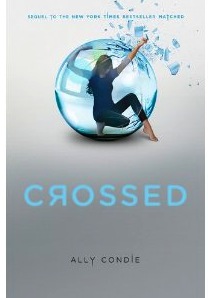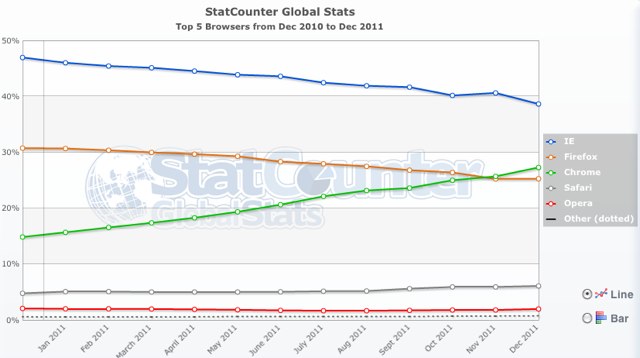
For the past several months–since October–someone at my church has given a testimony every Sunday. Each one builds from the statement, “Because of Jesus….” Each is a story of life-change.
Anchor Community Church is located in a low-income neighborhood near downtown Fort Wayne. Lots of dysfunction, lots of messy backgrounds. Eighteen registered sex offenders live within a half mile of the church. People from shelters and half-way houses find their way to us. Too many of our people live in survival mode, struggling to get by day to day. These are the type of people who come through our doors and find what they need spiritually.
These people are also some of the most genuine, unassuming people I’ve known. And so, when they give their “Because of Jesus” stories, they don’t sugar-coat anything, or try to make themselves look good or admirable. They just put it all out there, unafraid to tell people, “This is who I am, warts and all.”
In these stories, I’ve learned so much about the people who worship with me each Sunday. Stories of addictions, of abusive childhoods and abusive marriages, of losing jobs, of abortion, of cutting, of poor choices galore, of losing loved ones way too early, of life spinning hopelessly out of control. And then, because of Jesus….
Almost every Sunday, I have tears in my eyes. That was the case with the most recent story, from an older lady. She became acquainted with Anchor when living in a homeless shelter. Her story moved me deeply.
I need to hear stories like this. I need to know that God is working in people’s lives. Intellectually, I know he is. But I need to see it, and see it regularly.
When I was growing up, I saw it regularly in altar calls. I don’t want to be one of those persons who acts as if methods used in earlier days were always better. But, I’m just sayin’, it impacted me when I saw a grown man or woman walk down the aisle, in full view of everyone, and kneel humbly at the altar. It told me that God was speaking directly to people’s hearts, and that here was a person whom God had grabbed during the service and shaken up. The person just had to go make things right, and didn’t care who was watching.
Could he/she have made things right by staying in the pew? That’s what we do today. With “all heads bowed and every eye closed,” we invite people to quickly raise their hand to signify a life-changing commitment. Only the pastor sees. Is that better than asking someone to walk to an altar in front of everyone else?
I can remember various times, growing up and as an adult, when I came under conviction during an altar call, and wrestled with the idea of getting out of my seat and trudging to the altar. I would usually tell myself (if the speaker didn’t emphasize it), “If Jesus died on the cross for me, why can’t I muster up the courage to simply walk down to the church altar?” Yet, it could be a mighty struggle. I’ll bet you’ve experienced the same struggle.
Sometimes I made the walk, sometimes I chickened out. Would I have responded more often if I could have just raised my hand quickly, so that only the evangelist, God, me, and assorted peekers would know? Probably. Would that have been better? Most certainly not. Maybe it’s my background, but simply raising a hand, with nobody seeing, trivializes the idea of making a commitment or taking a stand for God.
It’s not only good for the person making the commitment. It’s good for everyone else in attendance, because it shows them, “God is working in people’s lives.” As a child, I regularly saw people making decisions for Christ. But as an adult, with our enlightened secretive methods, not wanting to put anyone on the spot, I rarely see this.
Which is why these “Because of Jesus….” testimonies mean so much to me. God is working in the lives of these people with whom I worship, some of whom have been broken in unfathomable ways. I need to see God grab people by the lapels and shake them up. I know that he does it, whether or not it involves journeying to an altar. But seeing it and hearing about it sure pumps me up.


 Today, January 21, I ran my Troybilt snowblower for the first time this year. Or this snow season. Those mysterious Almanac people always predict a harsh winter ahead, and this year was no different. “It’s gonna be a tough winter,” we were told. But not until today did we get enough snow to require revving up the snowblower. And already, the temperature is heading toward 40 degrees.
Today, January 21, I ran my Troybilt snowblower for the first time this year. Or this snow season. Those mysterious Almanac people always predict a harsh winter ahead, and this year was no different. “It’s gonna be a tough winter,” we were told. But not until today did we get enough snow to require revving up the snowblower. And already, the temperature is heading toward 40 degrees. “Legend” rocks. Plain and simple. Couldn’t stop reading, and didn’t want it to end.
“Legend” rocks. Plain and simple. Couldn’t stop reading, and didn’t want it to end. “Crossed” (Nov. 2011) is the sequel to Allie Condie’s acclaimed 2010 book, “Matched,” which tells the story of Cassia, a girl coming of age in a dystopian society. I loved “Matched,” and wrote a
“Crossed” (Nov. 2011) is the sequel to Allie Condie’s acclaimed 2010 book, “Matched,” which tells the story of Cassia, a girl coming of age in a dystopian society. I loved “Matched,” and wrote a 



 James Dashner wrote the very popular young adult “Maze Runner Trilogy.” It starts with a book published in 2009 called “The Maze Runner,” and concludes with the 2011 book “The Death Cure.”
James Dashner wrote the very popular young adult “Maze Runner Trilogy.” It starts with a book published in 2009 called “The Maze Runner,” and concludes with the 2011 book “The Death Cure.”



